Archive
2017
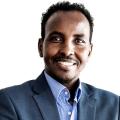
How do gender perspectives in migration health look like?
We ask Abdi Gele, Research Director at the National Expertise Center for Migration and Minority Health (NAKMI).
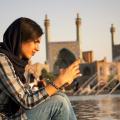
Iranian women become political players through Facebook
By mourning women as martyrs in Iran, they become recognised as political players, says Gilda Seddighi. She has studied Facebook pages dedicated to dead or incarcerated Iranians.

Design may alter gender stereotypes
Subconscious attitudes towards women and men affect design. According to researcher Nina Lysbakken, designers need to be aware of their own power to shape ideas about gender.

Sex Purchase Act has altered Swedes’ attitudes towards prostitution
While the number of Swedes supporting the sex purchase ban is rising, more people also feel positive towards a ban on selling sex. Thus, the goal of transferring stigma from seller to buyer is still not achieved.

Mum takes more responsibility for the children, even in gender equal couples
The social and moral responsibility for the children lies primarily with the mother, particularly at celebrations and festive seasons, according to Kristine Warhuus Smeby.

Eternal witch-hunt for the fat body
“The fat body carries a secret that has to be revealed at all costs; it is a living symptom that something has ‘gone wrong’,” says Camilla Bruun Eriksen. She has studied the representation of fat bodies in popular culture.

Communication is key to understanding female circumcision
Lack of communication hampers the prevention of female genital mutilation, according to anthropologist Rachel Issa Djesa. She has observed encounters between Norwegian authorities, health personnel and Somali women in Norway.

Dad becomes leader, mum becomes mum
A new study shows that the gender gap in management increases after couples have their first child.

Girls choosing the hard sciences are not alike
Boating with grandad may affect one’s choice of education just as much as gender does, according to researcher Marianne Løken. She is critical to the gender stereotypical recruitment campaigns to the hard sciences.

Cool to be queer in the Norwegian music scene
Norwegian musicians make careers from experimenting with queer gender identities. According to musicologist Agnete Eilertsen, pop music shows that the gender norms are changing although there is still a shortage of queer musicians.

Justifying gender equality through Islam
Young Norwegian Muslims are more liberal than their parents’ generation when it comes to equality and homosexuality, but both groups find support for their view in Islam, according to Levi Geir Eidhamar’s study.

Changing attitudes towards public breastfeeding in Norway
According to Norwegian researchers, the nursing breast has a safe place within the cafe scene, but they warn against increasing puritanism and less rights for the mother.

Women dealers empowered by selling drugs
Female drug dealers are a minority. According to sociologist Heidi Grundetjern, they gain self-confidence by succeeding in a cutthroat business, but they do not challenge the male dominance.
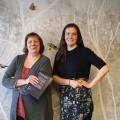
Sami victims of violence do not seek help
People with Sami background who experience domestic violence seek help from the authorities less often than other Norwegians. A new report has looked at what may be done.

Surrogacy: The impossible dream of a fair trade baby
While western couples get their longed-for child, Indian surrogate mothers are left with a feeling of having sacrificed more than they have gained. Surrogacy can never become a win-win situation, according to anthropologist Kristin Engh Førde.
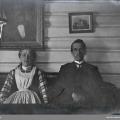
Until infidelity, disappearance or impotence do us part – the history of divorce in Norway
The history of divorce reveals hidden stories of love, domestic violence and societal ideals for a healthy marriage.

A warning against desirable facts about women in peace and conflict
Oversimplified perceptions of gender roles in war and conflict reproduce gender stereotypes and existing inequalities, according to researcher Maria Eriksson Baaz.

Feeling gender: from housewife to working mum
When Harriet Bjerrum Nielsen interviewed three generations of Norwegian women and men, she discovered how the emotional perception of gender has developed over time.

Norwegian courts discriminate: Ethnicity and location matter in sentencing of rape cases
A survey of rape convictions in Norway reveals systematic discrimination of men with minority background and of women.

Girls beaten by their boyfriend avoid the word ‘violence’
Young women who have experienced violence may be difficult to detect. In online reader’s queries, they try to put what is going on in their relationship into words.
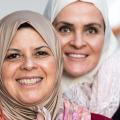
Gender-equality ideals make Muslim women more religious
When gender equality is portrayed as a uniquely Western value, immigrant Muslim women choose to embrace religion as a result, according to new research.

Underachieving boys, or clever girls?
Boys and girls perform differently at school, but researchers are uncertain whether this has to do with how they mature.

Gender matters in war reporting
Being a journalist in war zones and armed conflicts is becoming increasingly dangerous. Most of the journalists killed in the field are men, but the concern is about the security of their female colleagues.

Children have the right to their own gender identity
In Norway, children under the age of sixteen can now change their legal gender. Anniken Sørlie investigates how the legislation affects the way children and youth perceive their own identity.

Assisted fertilisation has become natural
The debate concerning reproductive technology in Norway challenges the limits for what is considered natural pregnancy.

Parenting programmes benefit daddies in prison
Training programmes focusing on fatherhood may make fathers in prison more law-abiding, according to Gunnar Vold Hansen.

New gender ideals in Egypt
“The gender positions in Egyptian society are changing,” says Monika Lindbekk. According to her, clear-cut antagonism between Islamism and feminism is now being challenged by legal changes.

Women central to the global fishing industry
Although women play a central role in the fishing industry in many parts of the world, their contribution has not been sufficiently recognised. Now, the gender perspective on fishing is finally asserting itself.
2016
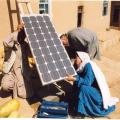
Empowered by electricity
The introduction of electricity in India and Afghanistan may save lives and reduce the oppression of women. But the picture is far from black and white.

The masculine avant-garde that fostered feminism
Futurism practically cleared the way for feminism, according to Madeleine Gedde Metz.